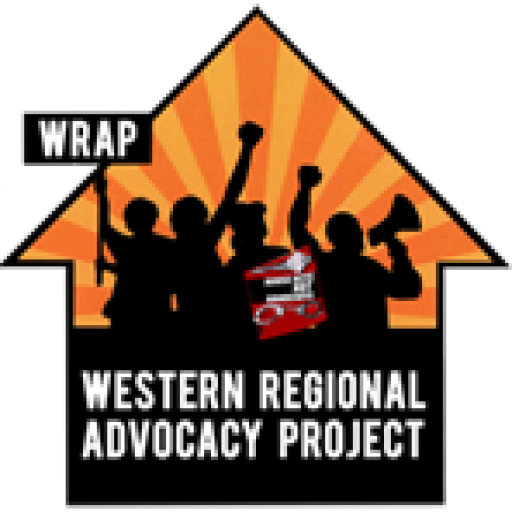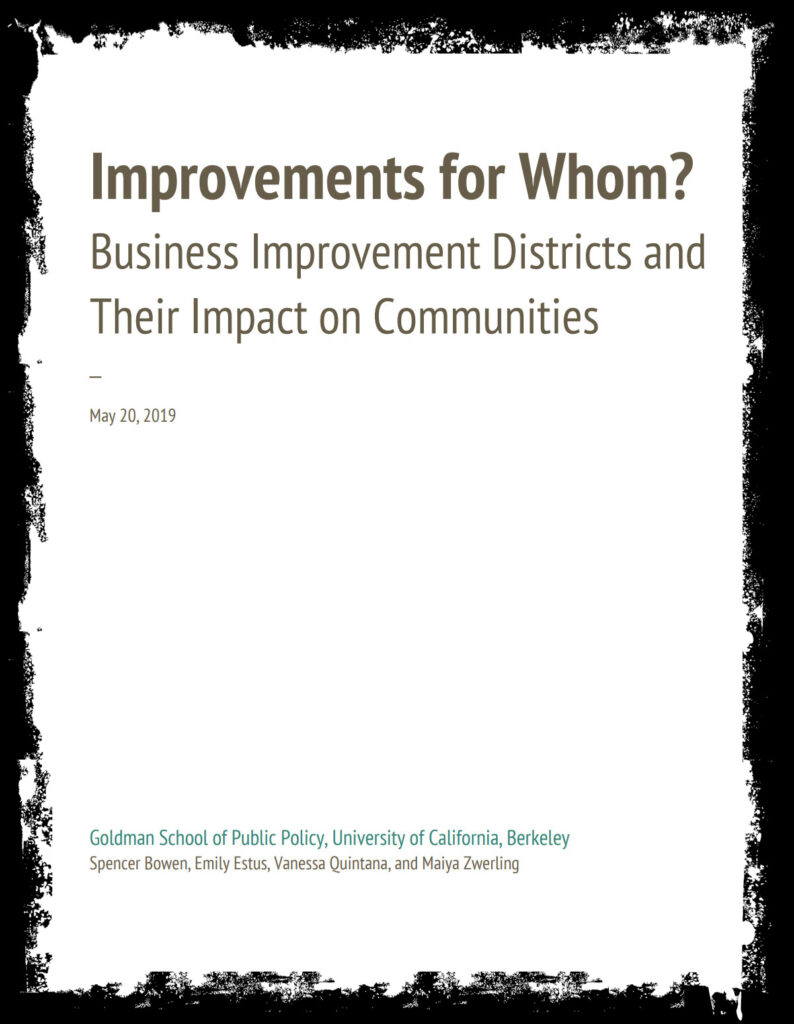
Improvements for Whom? Business Improvement Districts and Their Impact on Communities
This report was prepared for the Western Regional Advocacy Project (“WRAP”) by Goldman School of Public Policy students Maiya Zwerling, Vanessa Quintana, Emily Estus, and Spencer Bowen. We are indebted to the many stakeholders and experts interviewed for this piece, including Business Improvement District officials, public officials, housing and community leaders, unhoused advocates, and WRAP staff. In particular, we are grateful to Meredith Sadin for providing feedback and guidance throughout the report writing process.
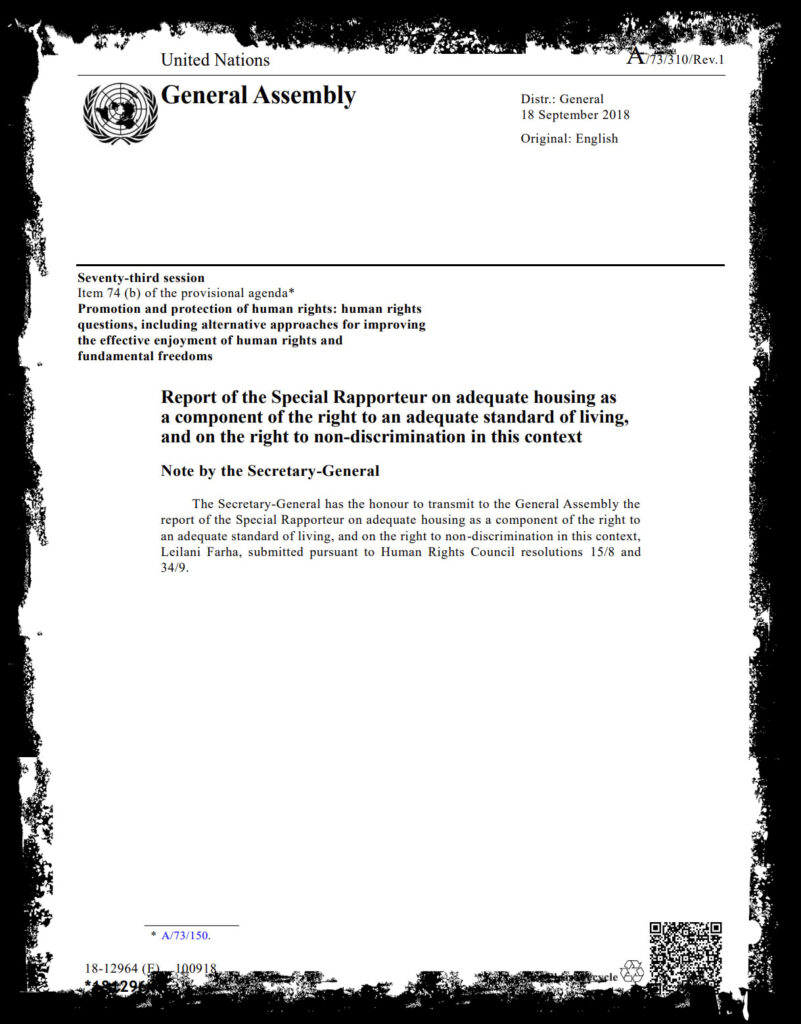
U.N. Report of the Special Rapporteur on adequate housing as a component of the right to an adequate standard of living, and on the right to non-discrimination in this context
Promotion and protection of human rights: human rights questions, including alternative approaches for improving the effective enjoyment of human rights and fundamental freedoms . Note by the Secretary-General. The Secretary-General has the honour to transmit to the General Assembly the report of the Special Rapporteur on adequate housing as a component of the right to an adequate standard of living, and on the right to non-discrimination in this context, Leilani Farha, submitted pursuant to Human Rights Council resolutions 15/8 and 34/9.

U.N. Report of the Special Rapporteur on extreme poverty and human rights on his mission to the United States of America 2018
Promotion and protection of all human rights, civil, political, economic, social and cultural rights, including the right to development. 68 Promotion and protection of all human rights, civil, political, economic, social and cultural rights, including the right to development. The Right to Rest Act introduced in California, Colorado and Oregon is an example of the type of legislative approach needed to shift from the criminal justice response to a human rights-centred response to homelessness.

Too High a Price 2: Move on to Where?
Here are three of the key findings from the report:
- The overall number of anti-homelessness ordinances has increased. Between Denver, Colorado Springs, and Boulder, there are at least thirty-seven ordinances that criminalize behaviors associated with people experiencing homelessness. Since Too High a Price was first released, Colorado Springs has added one new anti-homeless ordinance and Denver Law students found four additional ordinances in Denver.
- Colorado Springs and Boulder have increased the number of citations issued under camping bans. In 2017, Boulder issued 376 citations under its camping ban ordinance. Of those 376 citations, an incredible 81.9% were issued to homeless individuals. Additionally, Colorado Springs increased its enforcement of its two camping bans by a staggering 545% over the span of three years.
- Denver’s use of move-on orders has skyrocketed at an alarming rate.
In 2016 alone, Denver law enforcement made contact with over 5,000 people in move-on encounters. Denver police increased its contact with homeless individuals through the use of street checks by 475% in the span of three years.
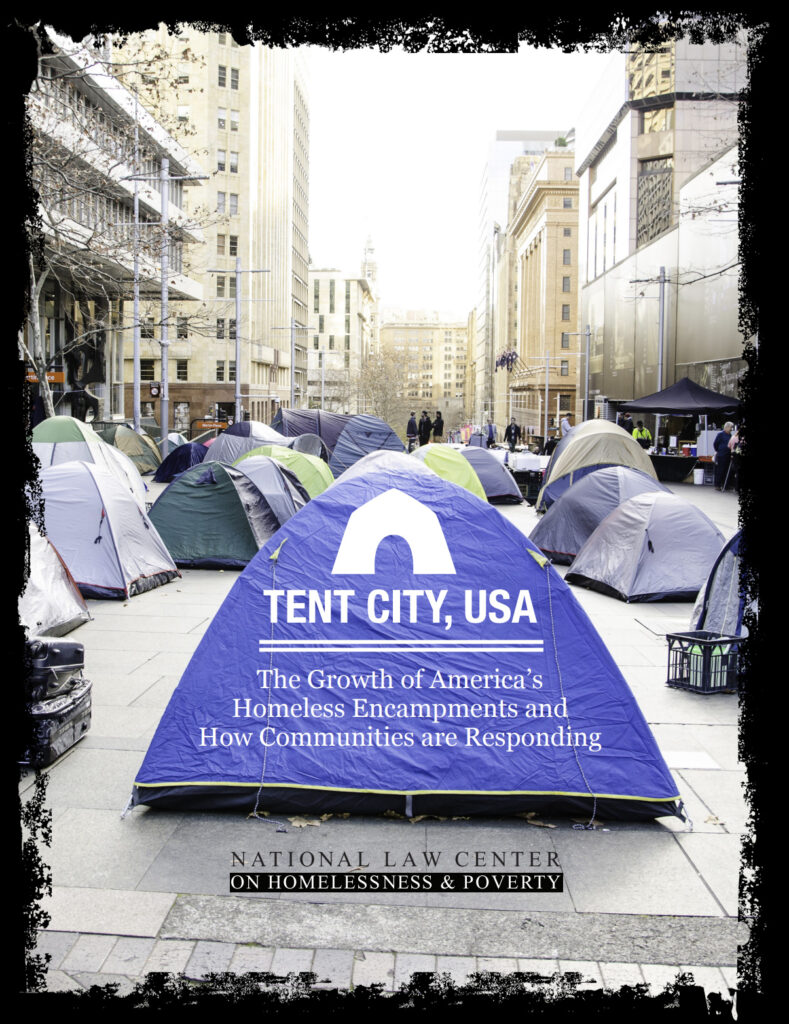
TENT CITY, USA: The Growth of America’s Homeless Encampments and How Communities are Responding
This report by the National Law Center on Homelessness & Poverty (“the Law Center”) documents the apparent rapid growth of encampments of people experiencing homelessness or “tent cities” across the United States and the legal and policy responses to that growth. (This report uses the term “encampments” but recognizes that there are multiple ways to refer to the living situation of self-sheltering homeless persons).
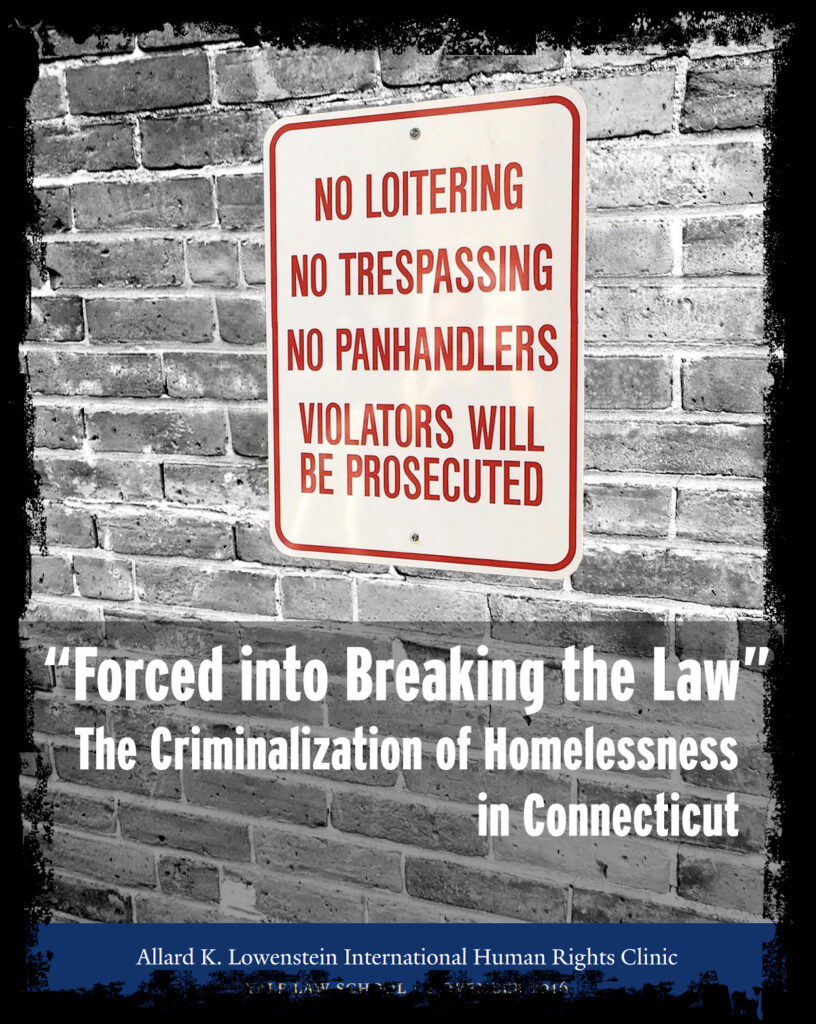
“Forced into Breaking the Law”: The Criminalization of Homelessness in Connecticut
The Allard K. Lowenstein International Human Rights Clinic at Yale Law School has released a new report titled “Forced into Breaking the Law”: The Criminalization of Homelessness in Connecticut. The report examines how Connecticut’s homeless residents face the threat of criminal sanctions for simply existing. The report also documents how Connecticut city ordinances, such as those prohibiting loitering, panhandling, and sleeping in public, punish people for performing necessary, life-sustaining functions, which effectively criminalizes homelessness itself. It further outlines how the criminalization of homelessness violates state, federal, and international law.
The release of the report coincides with National Hunger and Homelessness Awareness Week and the launch of the national “Housing Not Handcuffs” campaign, organized by National Coalition for the Homeless and the National Law Center on Homelessness and Poverty, which aims to end the criminalization of homelessness.
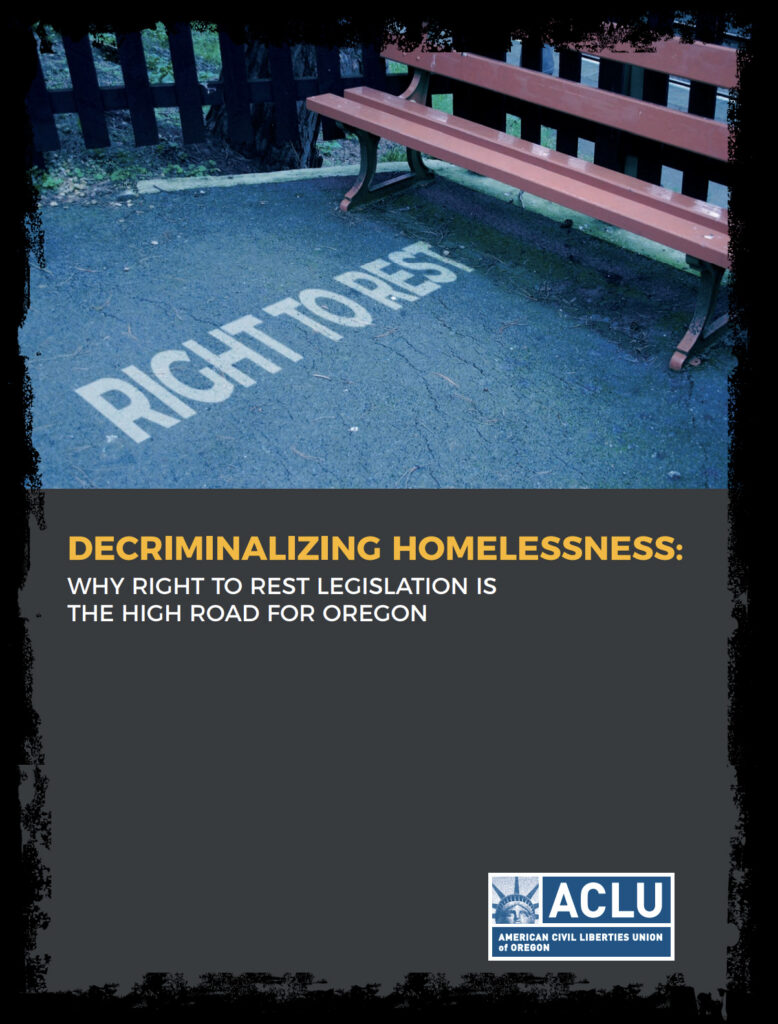
Decriminalizing Homelessness: Why the Right to Rest Act is the High Road for Oregon
April 5, 2017 – Oregon cities and counties are making it a crime for people to be homeless. Our new report, Decriminalizing Homelessness: Why Right to Rest Legislation is the High Road for Oregon, shows that basic acts of survival are being criminalized all across the state.
Our research found that Oregon’s most populous cities and counties have 224 laws that criminalize necessary life-sustaining activities like sitting, lying, resting, or eating in public. When someone has nowhere else to do these things, fines, fees, and a criminal record only further entrenches them in homelessness. Oregonians living on the street are forced make impossible choices to go about their daily lives.
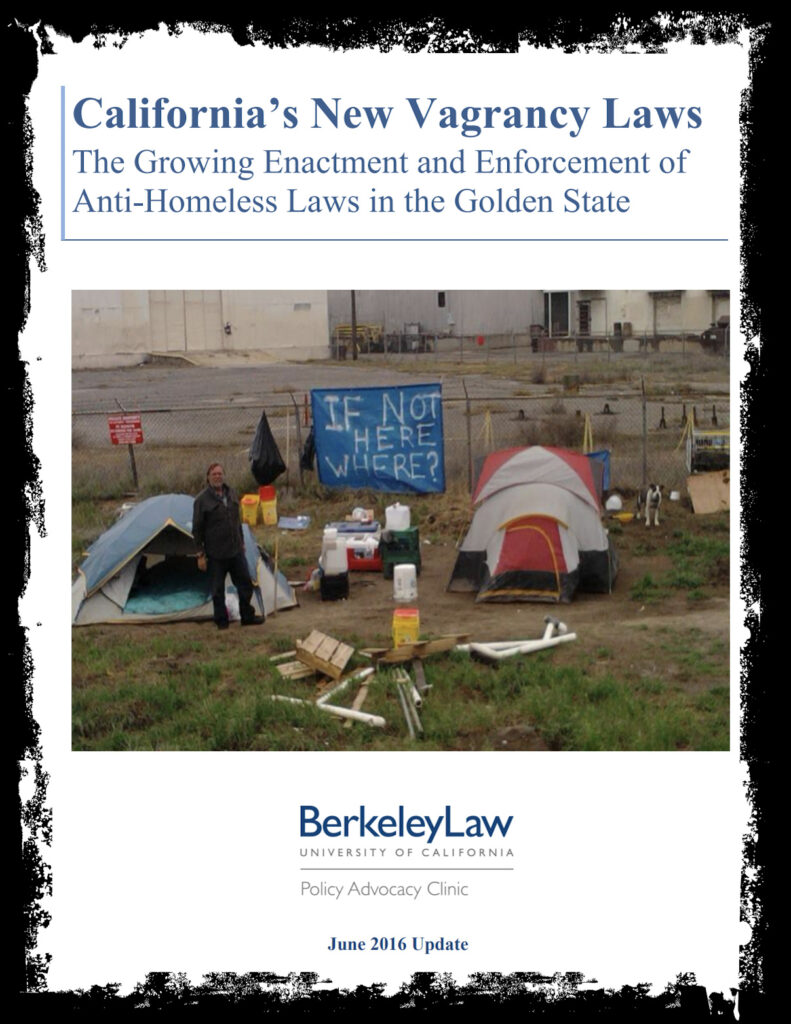
Updated and expanded – June 2016 California’s New Vagrancy Laws The Growing Enactment and Enforcement of Anti-Homeless Laws in the Golden State
June 2016, the Policy Advocacy Clinic at the University of California, Berkeley released an update on previous research report entitled “California’s New Vagrancy Laws: The Growing Enactment and Enforcement of Anti-Homeless Laws in the Golden State.” The study documents the increasing criminalization of homeless people in California through local laws mimicking shameful vagrancy laws of past eras that targeted people of color, migrants, and people with disabilities. Clinic students from the law school and the school of public policy analyzed municipal codes in 58 California cities, where three-quarters of California’s homeless people reside. They also gathered public records and interviewed key stakeholders in a sample of cities to study enforcement practices across the state.
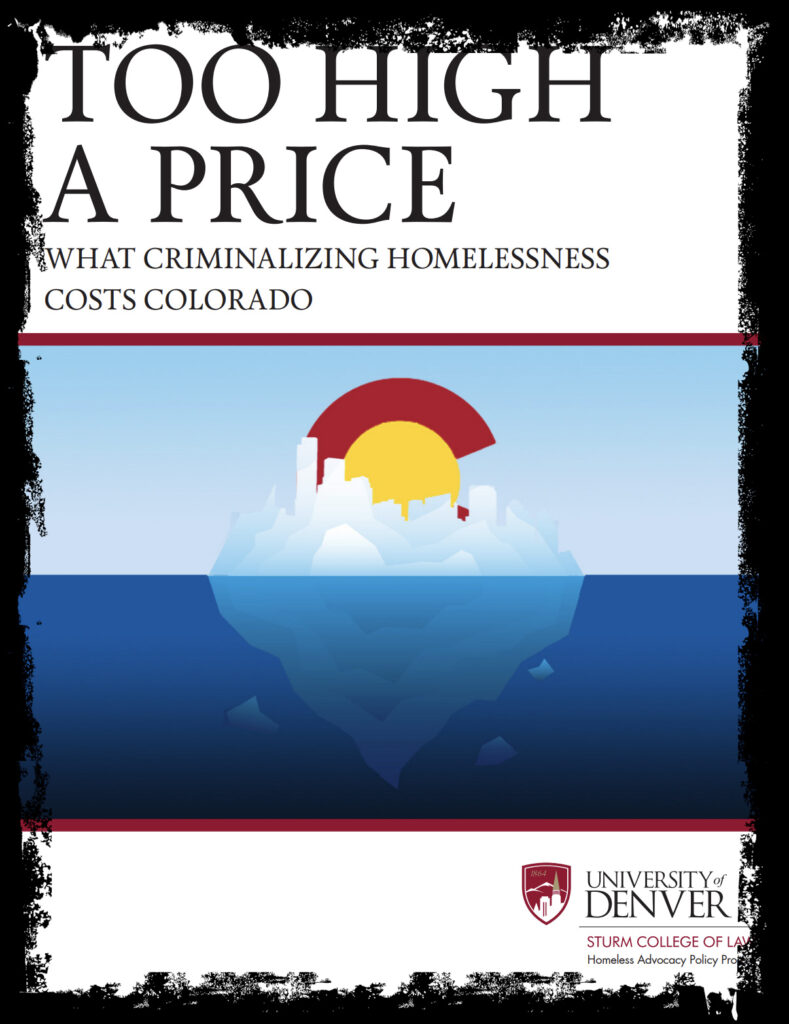
TOO HIGH A PRICE / What Criminalizing Homelessness Cost Colorado
by University of Denver. Sturm College of Law Homeless Advocacy Policy Project
Like Most of America, Colorado Faces a homeless epidemic. Amidst a stark rise in housing cost and equally sharp drop in available housing, Colorado cities struggle to address the overwhelming needs of its homeless residents. While professing a dedication to eliminate homeless through homeless and poverty services, state actors continue to write, pass, and enforce local ordinances that criminalize life-sustaining behaviors. Laws that criminalize panhandling, begging, camping, sitting or lying in public, and vagrancy targets and disproportionately impacts residents that are homeless for activities they must perform in the course od daily living.
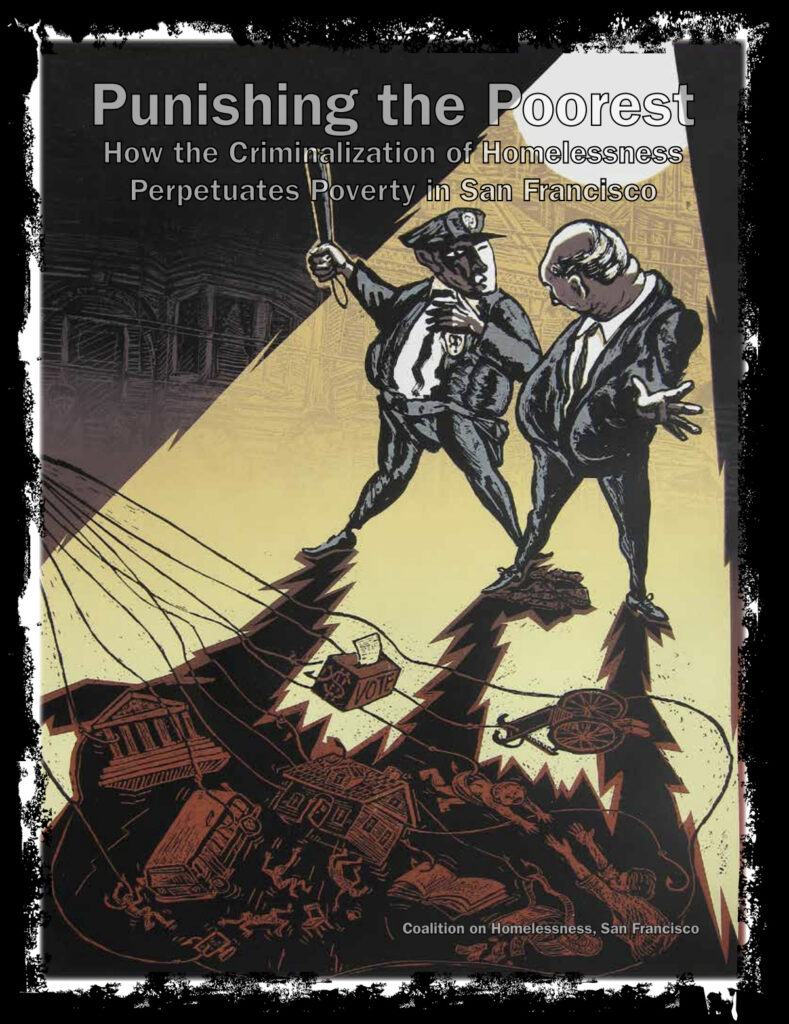
Punishing the Poorest – How the Criminalization of Homelessness Perpetuates Poverty in San Francisco
“I have to hide like a dog at night.”
—Oscar, homeless in San Francisco
This report details the effects of criminalization on the homeless residents of San Francisco. Since 1981, San Francisco has passed more local measures to criminalize sleeping, sitting, or panhandling in public spaces than any other city in the state of California.1 During this same period, the United States has experienced the greatest expansion members of this society.2 This report documents and analyzes the impacts of the rising tide of anti-homeless laws in our era of mass incarceration on those experiencing homelessness in San Francisco.
This portrait of the impact of criminalization on homelessness in San Francisco is based on a citywide survey of 351 homeless individuals and 43 in-depth interviews carried out by volunteers at the Coalition on Homelessness and supervised by researchers at the UC Berkeley Center on Human Rights. It also analyzes data on policy, citations, and arrests received from the San Francisco Police Department, the Sheriff’s Office, the Human Services Agency, and the Recreation and Park Department. The report provides an in-depth analysis of each step in the criminalization of homelessness—from interactions with law enforcement, to the issuance and processing of citations, to incarceration and release. The study makes evident how criminalization not only fails to reduce homelessness in public space, but also perpetuates homelessness, racial and gender inequality, and poverty even once one has exited homelessness.
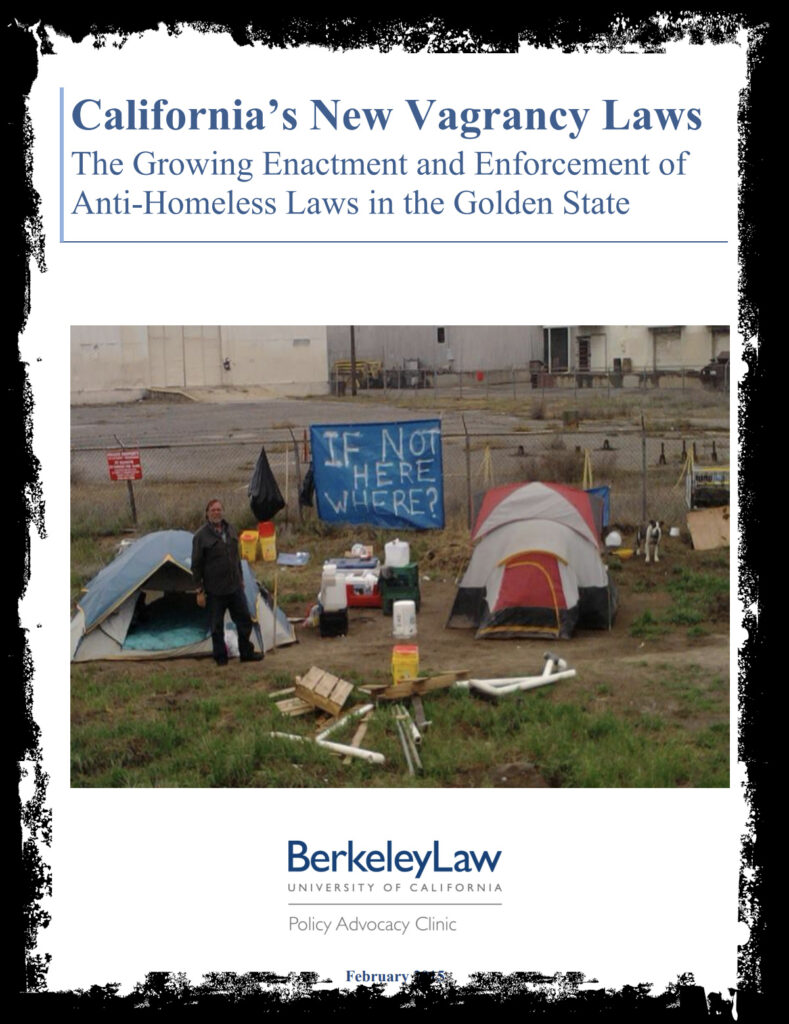
California’s New Vagrancy Laws Report by UC BerkeleyLaw PDF
The growing enactment and enforcement of Anti-Homeless Laws in the Golden State
In February 2015, the Policy Advocacy Clinic at the University of California, Berkeley released a research report entitled “California’s New Vagrancy Laws: The Growing Enactment and Enforcement of Anti-Homeless Laws in the Golden State.” (see flyer) The study documents the increasing criminalization of homeless people in California through local laws mimicking shameful vagrancy laws of past eras that targeted people of color, migrants, and people with disabilities. Clinic students from the law school and the school of public policy analyzed municipal codes in 58 California cities, where three-quarters of California’s homeless people reside. They also gathered public records and interviewed key stakeholders in a sample of cities to study enforcement practices across the state.
The briefs on criminalization from the Seattle University School of Law’s Homeless Rights Advocacy Project is out!. In May 2015, the Homeless Rights Advocacy Project at the Seattle University School of Law released a series of four reports entitled “Washington’s War on the Visibly Poor: A survey of Criminalizing Ordinances and their Enforcement,” The Wrong Side of History: A Comparison of Modern and Historical Criminalization Laws,” “Discrimination at the Margins: The Intersectionality of Homelessness and Other Marginalized Groups,” and “At What Cost: The Minimum Cost of Criminalizing Homelessness in Seattle and Spokane.” These four reports outline the many ways that homeless people in Washington are criminalized for necessary and life-sustaining activities, how these contemporary criminalization ordinances are directly linked to historical criminalization and discrimination laws that were previously rejected on legal and policy grounds, how these ordinances target already marginalized homeless people and the exorbitant costs of criminalizing homelessness.
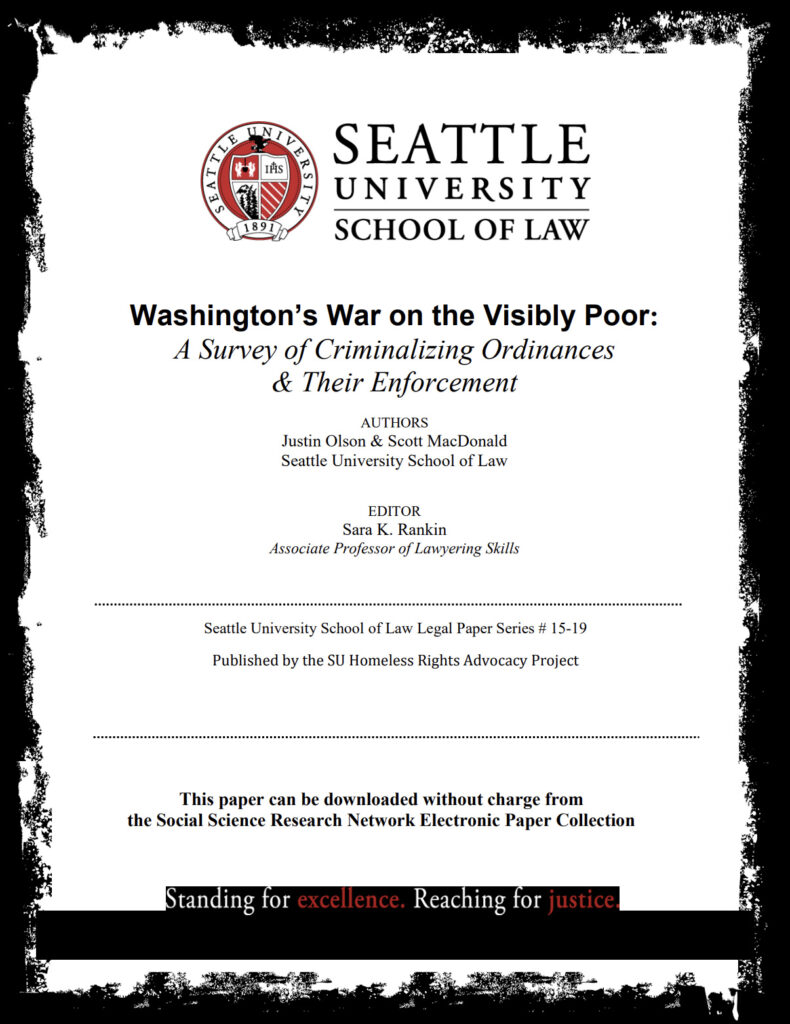
Washington’s War on the Visibly Poor: A Survey of Criminalizing Ordinances & Their Enforcement
Throughout the country, cities increasingly enact laws that punish behaviors necessary for survival. For those without shelter, there is no alternative but to conduct these behaviors in public. Camping outdoors, sleeping, going to the bathroom, receiving food, sitting or lying down on sidewalks — these laws target homeless people either in practice or outright. But until now, no one knew how widespread these laws are throughout Washington State, or how they are being enforced. This brief answers these questions.

The Wrong Side of History: A Comparison of Modern and Historical Criminalization Laws
Like many other cities throughout the country, Washington’s homeless population is being targeted through ordinances infused with a historical spirit of control and discrimination. The policy brief looks at the history of criminalization laws by focusing on historical criminalization laws and how they paved a way for current anti-homeless ordinances. The policy brief reveals that the spirit of historical criminalization laws is present in anti-homeless ordinances today. Since these historical laws have been repealed and overturned, so should anti-homeless ordinances that share the same spirit of control, exclusion, and discrimination.
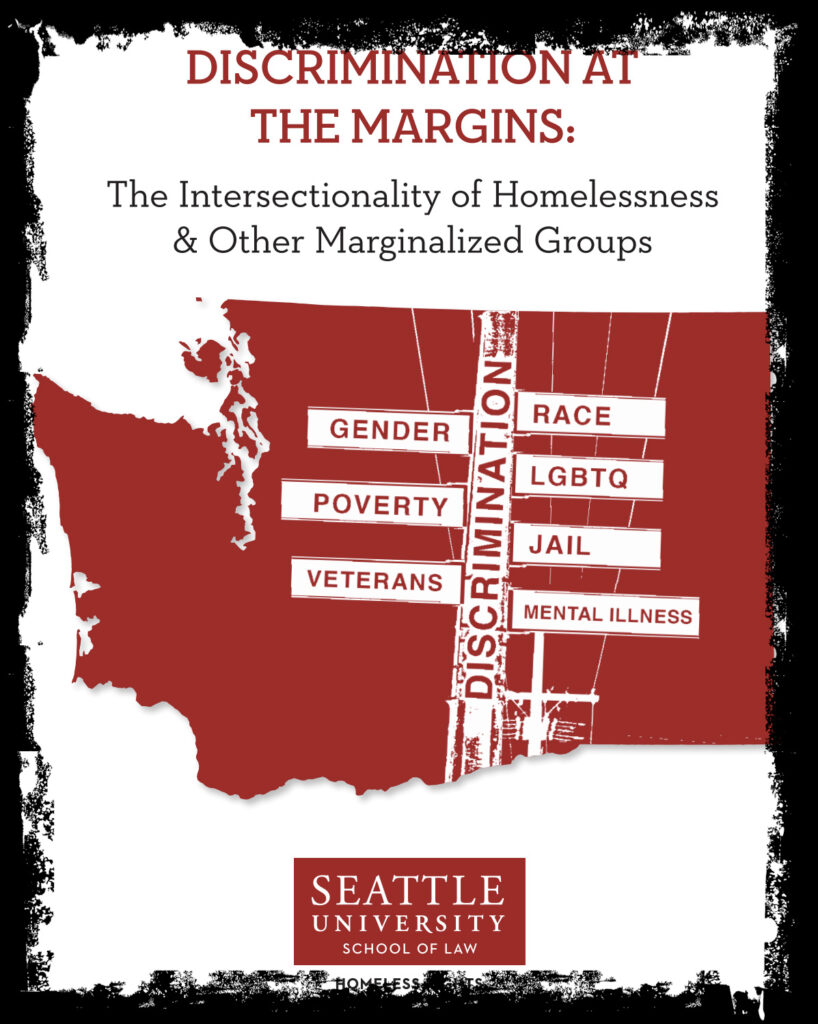
Discrimination at the Margins: The Intersectionality of Homelessness & Other Marginalized Groups
This brief addresses the intersectionality of homelessness and other marginalized groups. It examines six marginalized groups: racial minorities, women, individuals who identify as lesbian, gay, transgender, queer, or questioning (LGBTQ), individuals with a mental disability, incarcerated individuals, and veterans. The brief presents national and Washington State statistics to show how these six marginalized groups are represented in the homeless population compared to the general population. Moreover, it presents some of the causes of homelessness for these marginalized groups.

At What Cost: The Minimum Cost of Criminalizing Homelessness in Seattle and Spokane
Many studies around the country have demonstrated significant savings on incarceration, adjudication, and medical costs when funds are directed toward the creation of affordable housing. However, with the increasing prevalence of criminalization ordinances — ordinances that disparately impact the homeless — funds that could be used for affordable housing are being diverted toward their enforcement. Although existing studies address general costs and savings associated with housing homeless people, they do not address the costs directly attributable to criminalization ordinances. In an effort to shed light on these direct costs, the Seattle University Homeless Rights Advocacy Project has traced the following total costs directly to the enforcement of less than half of the identified criminalization ordinances in Seattle and Spokane:
